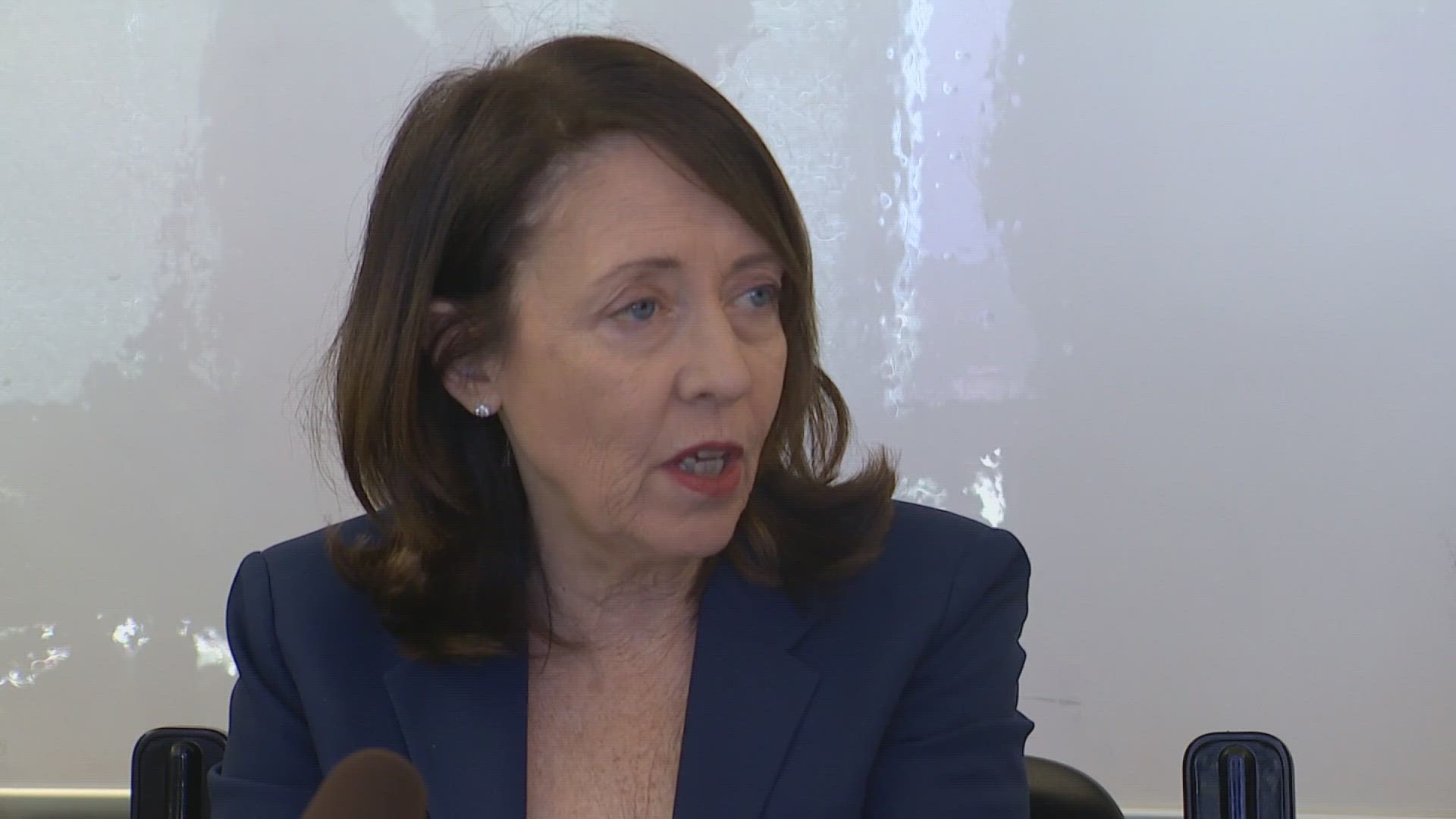EVERETT, Wash. — U.S. Sen. Maria Cantwell of Washington hosted a roundtable in Everett Monday to hear from people personally impacted by the fentanyl crisis facing western Washington and the nation as a whole.
People in recovery, loved ones of people who've died due to fentanyl, first responders, health specialists, local officials and tribal leaders shared their experiences and ideas for solutions as Cantwell pledged to push for a comprehensive federal response.
Taylor Madison says she was helped into recovery by the local nonprofit Hope Soldiers, which aided her with 24/7 support in accessing treatment, navigating the legal system and finding the resources she needed.
"I wouldn't be here today if it wasn't for them," Madison said. "Even going through active addiction, before I was ready for treatment, they would pop in with a text or call – hey, are you ready yet? They set everything up for me – detox, inpatient – helped me with housing, financial support. They have been my main support through my recovery."
Madison voiced the crucial nature of organizations like theirs and called for more community support for the work they do. She also hopes more people will learn about organizations like Hope Soldiers.
"There is hope. If you or someone you know is suffering from addiction, there is a way out," Madison said. "And there's a much, much better and more beautiful life out there if you want it."
Lindsey Arrington founded Hope Soldiers two years into her own recovery journey. She shared her own perspectives on the tools she believes would help more people get into recovery.
"One – access to treatment and removing barriers to treatment. Drug and alcohol assessments and that being a requirement in order for people to access treatment is a huge barrier and often delays the process of somebody being able to access treatment," Arrington said. "I also believe we should consider mandating treatment for those that are unable to make the choice for themselves and often incarceration can be a tool for that. Often people end up in the criminal justice system and we can help them get help there."
Arrington, too, wants people dealing with substance use disorders to know there is help available.
"There is hope and there is a way out of this. Will we ever see a day when we are not in this crisis at all? I don't know," Arrington said. "But I do have hope that through the collaborative efforts of county officials and grassroots efforts like myself and law enforcement that we can help bring solutions to the table and actually put our feet to the ground instead of just talking about it."
Cantwell said attacking the crisis must involve efforts to assist communities dealing with it now and to stop fentanyl from flowing into the country in the first place.
"I'm very cognizant that we live on the I-5 corridor, which means that we are an easier distribution path," Cantwell said. "The tribal chair for Tulalip was here and they are talking about rooting out this problem in individual communities and neighborhoods. So I would like us to have more federal resources...to help our communities root out people that are part of the delivery system and then work federally as well to try to reduce this level of product from China to Mexico and then from cartels into our state."

